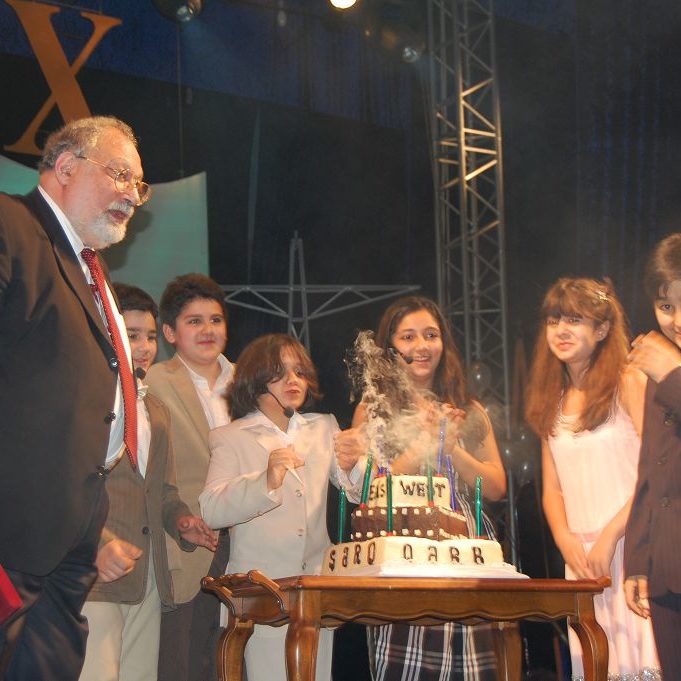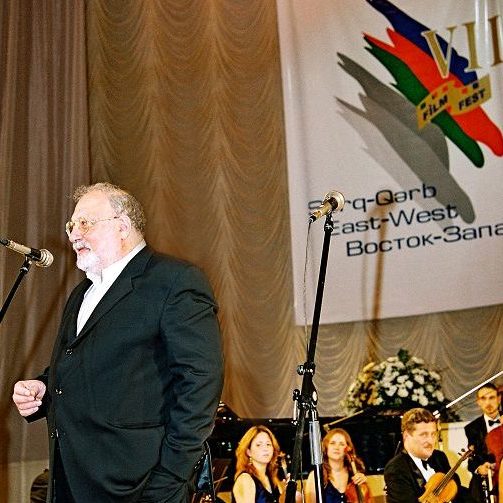The Baku International Film Festival (IFF) “East-West” was established by the Azerbaijan Union of Cinematographers and the Foundation of the 100th Anniversary of World Cinema with support from the Confederation of Unions of Cinematographers of the CIS and the Baltic States in 1996. The overall ideology of the festival is to facilitate unification and mutual enrichment of two cultures – eastern and western.
Azerbaijan and its capital Baku were chosen as the venue for the festival not by accident. After all, the border between Europe and Asia passes through Azerbaijan along the Greater Caucasus Range. The Great Silk Route ran from China to Central Europe also through here, linking East and West. Since ancient times, Azerbaijan has been located at the crossroads of cultures. For centuries, Eastern and Western civilizations, including different nationalities, religions, traditions and cultures, have peacefully coexisted in Baku, mutually enriching each other… The goal of the “East-West” film festival was to preserve and enhance this process.
The first “East-West” International Film Festival was held in October 1996 and immediately became an integral part of the cultural process in Baku, turning the capital of Azerbaijan into the Mecca of cinematographic art. At the same time, the festival earned the reputation of one of the largest and most significant cultural events in the entire post-Soviet space.
The IFF brought together venerable filmmakers, scriptwriters, playwrights, actors, producers, film critics, film studio leaders, art historians and journalists. “East-West” has become a huge discussion platform for film professionals who have obtained the opportunity to discuss current achievements and state, trends and prospects for the development of cinema on a global scale and to conduct numerous studies.
Discussions on sensitive issues took place both on the sidelines and during round tables and seminars of the film festival. In the very first year, a round table was held within the framework of the IFF on “Post-Soviet Space: Cinema and Life”, which discussed problems of cinema in the CIS and Baltic countries of the 1990s.







